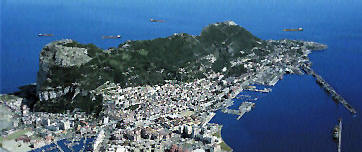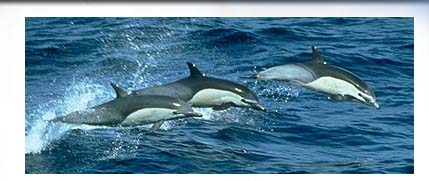|
Gibraltarfaq |
||||||||||||||||||||||||||||||||||||||||
|
Here are some of the questions we’ve been asked most frequently about Monkey Rock, and some answers to them. Holiday stuff What’s the weather like? During the summer, generally sunny and hot. Is there much to do? Gibraltar is less than 3 miles long and half a mile across, into which has to be crammed a fairly big rock, housing for 28,000 people, space for seemingly twice as many cars, and some apes. Inevitably this limits how much there is to do there, but here are some things to keep people occupied: The Rock: You can walk or drive up and around much of the Upper Rock, or take the cable car to the very top. Amazing views, on a good day, of both Europe and Africa, without having to set foot in either.
Apes: Aside from the Rock itself, the barbary macques which live on it are probably Gibraltar’s most famous feature. They live mainly in the Upper Rock, though occasionally wander down into town or into people’s houses. You’re not supposed to feed them, though everyone does, which is why they’re so fat.
Dolphins: The Bay of Gibraltar is a breeding ground for dolphins and huge numbers pass through. Various boat trips operate from Queensway Quay: it’s best to pick a boat where you can stand right on the edge, close to the water. During the summer you’re almost guaranteed to see large numbers of dolphins.
Caves: Upper St Michael’s Cave is open to the public and is enormous though not otherwise particularly interesting. The Lower St Michael’s complex, however, is spectacular and well worth a trip. Guided trips have to be arranged in advance and involve having a pair of trainers that you don’t mind sacrificing. Separately, you can also walk through many of the tunnels which were dug into the Rock during its various sieges. Pubs: A remnant of its times as a naval base, Gibraltar reputedly has more pubs per square mile than anywhere else in Europe. Beaches: Although there are a few small beaches in Gibraltar (of which Catalan Bay is better and Eastern Beach is rather worse), those at Tarifa in Spain are infinitely better. There are also various beaches on the Costa del Sol, eg at Sotogrande, Torreguadiaro, Estepona and Marbella. For comedy value, though, try grabbing what looks like a vacant patch of Gibraltarian beach. In a further repudiation of any suggestion of Spanish nationality, Gibraltarians are instead positively Germanic in their beach attitudes, using not just towels but all manner of beach and indeed household furniture to mark out their bit of sand for days or weeks at a time. Are there nice places to eat? Yes, unless you absolutely insist on at least one Michelin star with every meal. Unfortunately, Gibraltar abounds with places targetted at the undiscerning or downright gullible package tourist. Helpfully, most of these are obvious because they look like something out of the 1970s, complete with pictures on the menu. Places which advertise themselves as “British” are also a giveaway – Gordon Ramsay is not what they have in mind. However, there are a number of much better places and we’ll post an up-to-date list here nearer the time. How to we get there? See the “How to get there” section. Are there nice places to stay? See the “Where to stay” section Cultural stuff What language do they speak? Every introduction to Gibraltar written by a Gibraltarian starts with “Gibraltar has been British since 1704.” This is unique, as it is the only sentence which Gibraltarians always say entirely in English. Although English is the sole official language, virtually the entire population speak both English and Spanish, and will change from one to the other several times in any given sentence. Curiously, alcohol consumption appears to increase the Spanish proportion. Are there any special Gibraltarian words? Absolutely. Here are some common words which are derived from Spanish but which Gibraltarians will use repeatedly even when they think they are speaking entirely in English, and all of which have special Gibraltarian meanings:
History/politics stuff (totally irrelevant, but more people ask these questions than the ones above, and this will save us repeating ourselves) Why on earth is it British? The British occupied it in 1704 as part of the Thirty Years’ War and, six years later in the Treaty of Utrecht, the Spanish agreed that we could have it forever. Why isn’t it independent? The Treaty of Utrecht says that if Britain doesn’t have Gibraltar, it goes back to Spain. The Gibraltar Constitution says that the British can’t do anything which would cause Gibraltar to become Spanish without the consent of the local population. Why does Spain want it? Because it’s there, and it used to be theirs. Of course, France is there too, and California used to be theirs, but never mind. Why haven’t we given it back? The local population are fairly clear about not consenting. They’ve been asked twice (in a referendum in 1969 and another in 2002) and have refused by over 99% each time. Why don’t they want to be Spanish? Two reasons, mainly. Firstly, they aren’t – the population is a melange of about a dozen different ethnic groups, including Portuguese, Maltese, Genoese, Catalan, Jewish and Moroccan as well as Andalucian and British. The vast majority of the population were born on the Rock. Secondly, Spanish governments have spent most of the 300 years since they gave Gibraltar to Britain trying to force it back. General Franco sealed the frontier, effectively isolating the entire population on the tiny rock for 15 years, and later governments forced Gibraltarians to queue for up to four hours to cross the border in either direction: none of which has created much warmth towards the Spanish government. Do they govern themselves? Yes. Gibraltar has its own parliament and government, together with a frankly incomprehensible political system. Is Gibraltar part of the EU? Yes, but free movement does not apply so you need a passport to go in or out and before you get arrested for smuggling or tax fraud read the section on the Frontier. What about — Oh go read an encyclopaedia Frontier stuff Crossing the frontier is now considerably easier than in previous years, particularly since the election of the current Spanish government. How long does it take to cross on foot? Usually a couple of minutes. You just walk through the relevant building. On the Spanish side they may want to check whatever bags you’re carrying, but not normally. How long does it take to cross by car? It depends. At peak times – morning/evening rush hours, going out of Gibraltar on Saturday mornings and coming in on Sunday evenings – the queue can be quite lengthy, but rarely more than 30-40 minutes. More normal is a wait of 10-20 minutes. Note that although you can make your own way from the wedding to the reception we will provide buses, and these do not have to queue up. Do we need passports or visas? Everyone needs a passport or an EU/EEA identity card to cross in either direction. EU/EEA citizens do not need visas. People from further afield may need visas, either for Gibraltar or for Spain, or both – if you come into this category, you’ll have to find out for yourself. Can we take whatever we like across? No. Although it is part of the EU, Gibraltar is outside the Customs area. This means that, apart from whatever you’re carrying in your bloodstream, you’re subject to the normal duty free limits on alcohol and tobacco each time you cross. Both of these are much cheaper in Gibraltar, and the Spanish border guards get irritable about people crossing with large quantities. How strict are the border controls? Not as strict as they used to be. However, surly Civil Guards still wear fasces on their uniforms and sometimes insist on making unnecessary checks on vehicles (lifting up chairs, checking lights and wipers, etc). Consequently, when asked if you have anything to declare, it is wise to refrain, however tempting, from responses such as “Yes indeed: God Save the Queen”, “You see that big lump of rock over there? Not yours, is it?” or “During the 1940s, my [father/grandfather] fought against the fascists: which side was yours on?” |
|
|||||||||||||||||||||||||||||||||||||||


